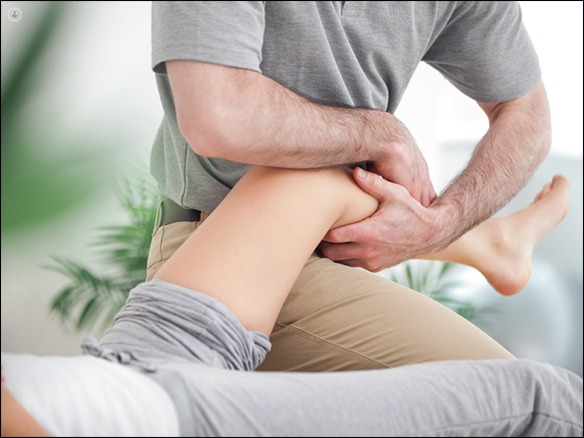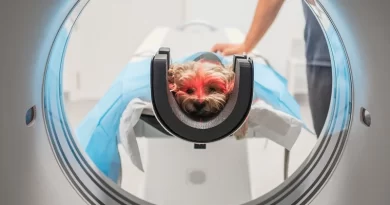Polymyositis – symptoms, causes diagnosis & ayurvedic treatment
Abstract
There are a variety of idiopathic inflammatory myopathies becoming common these days. Out of which Polymyositis is a separate entity which is the least common among such myopathies since it is an excursion diagnosis. In this article we are going to discuss the rarest idiopathic inflammatory myopathy polymyositis, its causes, and clinical manifestations along with the best Ayurvedic formulations for the treatment of Polymyositis.
Introduction
Polymyositis as already described is an uncommon idiopathic inflammatory disease affecting the muscle tissues, and is characterised by the gradual weakening of muscles of the body over the period of time. This chronic muscle weakness condition affects the body muscles bilaterally. This muscle weakness is resulted from the muscle fibers inflammation because of which the blood vessels passing through the affected muscles are affected adversely. The progessive weakness of the muscles, inflammations of the muscle fibers are the two main characteristic features of Polymyositis and these features are resulted from the spontaneous and recurrent attack of the immune cells of the inflammation (white blood cells) on the muscles. The muscles close to the torso or trunk such as the muscles of shoulders, upper back, neck, hips, upper arms and thighs, are the most common sites affected by the Poymyositis.
When due to self negligence or carelessness, if this condition remains untreated for a longer duration of time then this progessive muscle weakness upon chronicity may lead to the severe competitions for the affected persons, can cause the restriction in daily routine activities and can cause frequent falls. Further, the affected weakened muscle may involve the muscles responsible for the respiration and cause severe disability and respiratory problems. This condition generally affects the women of age group 30-60 years, whereas the males are comparatively at the lower risk for developing this disease.

Sign and Symptoms
The clinical features of Polymyositis depends upon the chronicity, severity and the area of muscles involved. Despite these factors the commonest manifestation of the disease include the weakness in the muscles, especially im the shoulders, upper arms, hips, thighs and the abdomen, stiffness of the muscles, pain and stiffness of the joints, chronic fatigue, fever, weight loss, trouble in lifting things, walking, rising from a chair, going up and downstairs, difficulty in extending the knees and lifting arms over head. The affected person may feel breathing difficulties on the involvement of respiratory muscles or lung tissues, difficulty in eating and swallowing the food articles. When the heart muscles are inflamed the person will have irregular heart rhythms.
Causes
Polymyositis as already discussed is an idiopathic disease of an unknown etiology. But it is believed that the disease is formed as a result of an altered immune response to muscle tissues, resulting in muscle damage, some other possible causes includes the exposure to certain medications such as anti-ulcer, anticancer, medications for hepatitis or antiepileptic medications. Genetics factors also play a key role in the increased risk of developing the inflammatory myopathies.
Risk factors
People suffering from the viral infections such as Human Immunodeficiency Virus (HIV), HTLV-1 and Coxsackie B virus or any systemic autoimmune conditions such as Scleroderma, Sjogren’s syndrome, Rheumatic disease, and Lupus are more prone for developing the polymyositis condition. The other conditions which are found in association with Polymyositis are cancer, Raynaud’s phenomenon, Interstitial lung disease and cardiovascular disease etc.
Ayurvedic View
Polymyositis being a myopathy, in Ayurveda can be considered as the mans dhatu dushti resulted from the vitiation of tridosha resulting in the mansavaha strotodudhti which result in the depletion of mans dhatu (connective tissue related with the muscles) of the body, manifested by soth (inflammation in the muscle fibers), ruja (pain) and durbalya (chronic fatigue) etc.
Treatment
Planet Ayurveda Is A Leading Herbal Manufacturing Unit That Formulates The Formulation With Strict Adherence To Ayurvedic Principles & Texts. The Formulations Made Here Are Obtained From 100% Natural Sources And These Are Made Under The Strict Supervision And Surveillance Of The Expert Team Led By Experienced Ayurvedic Physicians. The Herbal/Herbomineral Formulations Are Made With Ancient Time Tested Formulas.

Herbal Remedies as suggested by Planet Ayurveda experts for the treatment of Polymyositis includes
- RumoGin 5 Capsules
- Boswellia Curcumin
- Musli Strength
- Yograj Guggul
- Aamvatantak Churna
Product Description
1. RumoGin 5 Capsules
RumoGin 5 Capsules
RumoGin 5 is a polyherbal formulation made by Planet Ayurveda’s expert having the beneficial ingredients such as Sonth (Zingiber officinale), Shallaki (Boswellia serrata), Pippali (Piper longum), Haridra (Curcuma longa) and Maricha (Piper nigrum). This will help in improving the digestion and relieving the pain and inflammation of the muscles in the Polymyositis.
Dosage– 1 capsule twice daily, with water after meals.
2. Boswellia Curcumin
Boswellia Curcumin capsule formulation made by Planet Ayurveda is the best combination made from the goodness of the extract of two beneficial herbs i.e. Curcumin is the functional extract of Haridra (Curcuma longa) and Shallaki (Boswellia serrata). Shallaki has a very beneficial collagen production which will strengthen up the muscles and also help in reducing the inflammation. Also the Curcumin is the rich source of antioxidants which help in scavenging the free radicals and help in healing the muscle weakness in a faster way in Polymyositis.
Dosage-1 capsule twice daily after meals with water.
3. Musli Strength
Musli Strength is also made by Planet Ayurveda’s experts from the two ingredients i.e. Musli (Chlorophytum borivilianum) and Gokshura (Tribulus terrestris). These both ingredients are used for their nourishing properties which help in healing up the depleted body tissues and provide the adequate nourishment at even the cellular level. These capsules will help in treating the generalised weakness and fatigue of the body and providing the strength to the muscles and the other body tissues. Thus, helping in the treatment of this myopathy.
Dosage-1 capsule twice daily with water after meals.
4. Yograj Guggul
Yograj Guggul is the classical Ayurvedic formulation used to treat the pain and inflammation in muscles and bones, since ages. The ingredients of this medicine include
- Guggul (Commiphora mukul),
- Chitrak (Plumbago zeylanica)
- Amalaki (Emblica officinalis)
- Bibhitaki (Terminalia bellirica)
- Haritaki (Terminalia chebula)
- Vidang (Embelia ribes), Maricha (Piper nigrum) etc.
like other ingredients which are having multiple medicinal properties. The formulation as a whole help in detoxifying the body by the purgatory action of triphala, then the herbs having hot potency such as Chitrak, Shunthi, Pippali, etc will help in restoring the digestive fire to treat the auto-immune related condition associated with the polymyositis. Also the other ingredients such as Rason (Pluchea lanceolata) and guggul with their anti-inflammatory and analgesic actions helps in reducing the inflammation of muscle fibres and pain associated with Polymyositis.
Dosage– Two tablets twice daily with plain water after meals. (To be crushed or chewed well before use).
5. Aamvatantak Churna
This is the poly herbal classical formulation available in the powder form. The ingredients of this powder include six herbs i.e
- Methi (Trigonella foenum)
- Suranjaan (Colchicum autumnale)
- Gorakhmundi (Sphaeranthus indicus)
- Haridra (Curcuma longa)
- Ashwagandha (Withania somnifera)
- Sonth (Zingiber officinale
Thus this blend has multiple properties that will help in treating the Polymyositis, such as anti-inflammatory, analgesic, and strength enhancing properties.
Contact my assistant to provide you the costing / ordering and delivery information at – costing.planetayurveda@gmail.com or call at +91-172-5214030
Conclusion
There is no adequate treatment modality available in the modern Allopathic medicine for Polymyositis. They just rely on the symptomatic relief and use of immunosuppressant or steroidal medications such as Azathioprine and Methotrexate. Using these medications for the longer duration of time, create many complications in the liver and kidneys like vital organs and make the body prone for many infections and diseases. But Ayurveda being the oldest Science of medicine and life, treating such diseases effectively and with relatively lesser side effects. Thus, along with an integrated approach of lifestyle and dietary modifications, these herbal medicines will help in the treatment of Polymyositis.





